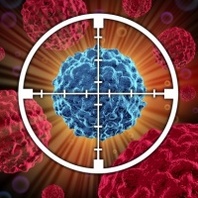radiotherapy
Radiotherapy
Radiotherapy is one of three basic methods used in the treatment of cancer. It involves the use of ionizing radiation to destroy abnormal cells. Treatment plans are properly trained physician (specialist in radiation oncology).
Mechanism of action
Ionizing radiation causes the excitation cascade (water radiolysis, free radicals), which destroys the cell (the most sensitive cells are rapidly dividing).
There are several types of radiation used in radiotherapy:
A. radiation indirectly ionizing (X-rays, gamma rays),
B. molecular radiation:
a directly ionizing (electron, proton, alpha particle and heavy ions),
b indirectly ionizing (neutrons - currently at the research stage).
Division of radiotherapy
There are several divisions of radiotherapy, depending on:
A. therapeutic aims:
a) radical radiotherapy - the aim is destruction of the tumor, radiotherapy is subjected tumor, surrounding tissue and lymph nodes.
b) palliative radiotherapy - used to relieve cancer pain in advanced disease (e.g. bone metastases).
c) radiation of symptoms - the target is assumed to improve the quality of life of the patient by the partial restoration of function (e.g. a decrease in tumor size in cancer of the esophagus).
B. method of irradiation:
a) brachytherapy - the oldest of healing methods, involves placing a radioactive isotope in the tumor area, uses elements such as iridium, cesium, tantalum, iodine, radium, gold, brachytherapy alone may be divided into several subtypes:
• intratissue brachytherapy (source placed in the tumor),
• intracavity brachytherapy (source of natural openings in the body),
• surface brachytherapy (source placed on the skin on the skin to treat changes in surface water),
• intravascular brachytherapy (the source of the blood vessels - preventing restenosis)
• intraoperative brachytherapy.
b) teleradiotherapy - involves the use of special equipment (linear accelerators) to irradiation changes, new techniques (IMRT, IGRT, RapidArc, CyberKnife) allow for improved treatment results and more accurate administration of the required dose of radiation.
Targeting Cancer: New developments in cancer therapeutics
While surgery, chemotherapy and radiotherapy have been the mainstays of cancer treatment for many years, progress in our understanding of tumour pathophysiology...
